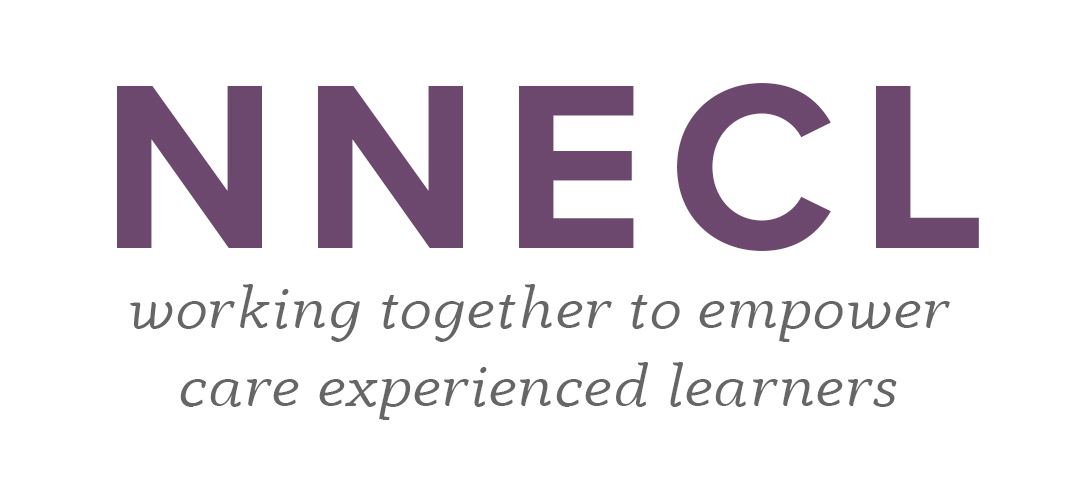NNECL are delighted to have recently joined the steering group for the Keep Caring to 18 Campaign.
From Saturday 28th October 2023 new legislation makes it unlawful for local authorities to house children in care aged 16 and 17 in 'supported accommodation' if the providers has not sent registration documents to Ofsted.
This kind of accommodation may include bedsits, shared houses with adults and strangers, hostels and even Caravans, Boats and tents. The minimum Ofsted inspection will be every 3 years and only a few sample properties will be inspected, with 2 day notifications of inspections. In contrast. all children's homes are inspected at least once a year, and in some cases twice with no announcement of inspection.
The #KeepCaringCampaign seeks to ensure that every child in care receives care where they live and we are running a series of articles through #NCLW2023 to support our work.
Use the following link to meet the steering group and keep an eye out for and please support our campaign through our bulletins and Twitter.

As part of our work with this steering group, our new Director, Denise Rawls has written an article in light of the news that the law is changing on Saturday 28th October 2023 regarding unsupported housing for 16/17 years olds in care. This law change will mean that many of our most vulnerable teenagers will remain in housing situations where there is either none or very limited support.
Time to Care?
Imagine being 16 or 17. Due to various reasons you were unable to continue living with your birth parents and have lived in several foster placements for the last 5 years of your life. Each of these foster placement moves has disrupted your friendships and your relationships. You may have changed schools several times, which has disrupted your education.
Imagine being 16 or 17 and your next ‘placement’ was in a static caravan or a shared house with other vulnerable young adults. Would you feel safe? Would you feel secure? Would you feel capable of making decision regarding your future when your world is in fight or flight mode constantly? Would you feel able to thrive?
How can it be that we live in the sixth richest economy in the world, with access to childcare experts and the funding of a developed nation, yet we cannot manage to find suitable and safe homes for our most vulnerable young people? We know the 13 year old distressed boy at the centre of the news story broken by the Mirror last week is only one of the many young people housed in an unsuitable facility because of the shortage of care homes.
Looking ahead, I worry about the impact this series of traumatic experiences will have on our care experienced young people’s education and transition into adulthood. We want all young people to be thinking about their future ambitions and to be excited about the adventure’s life will take them on, not worrying about being alone in unsupportive living conditions.
The UCAS report ‘Next steps: What is the experience of students from a care background in education?’ published last November with support from NNECL clearly highlighted the challenges faced by care-experienced applicants when thinking about their further or higher education options.
The report says the intersectionality of care experience, with other personal characteristics presents additional challenges – these applicants are 38% more likely than non-care experienced applicants to come from the most disadvantaged areas, they are twice as likely to be from a mixed or black heritage background, 79% are more likely to share a disability, and applicants are nearly three times as likely to share a mental health condition.
The report also clearly details how a care-experienced students’ journey to education is often longer and non-linear, one third of applicants are aged over 21 compared with UK applicants without a care background. When we consider the impact living conditions has on our ability to make informed, supported and educated choices these figures demonstrate why there is so much disparity between care experienced young people in Higher Education in comparison to their non care experienced peers.
I can relate to this; I went to university in my 30’s and am back for another go in my 50’s.
As the very new Director of the practitioner network NNECL I was pleased to see the reports recognition for the NNECL Quality Mark which creates a focused framework for both colleges and universities to guide them through their own journey in addressing and supporting the issues care-experienced applicants see as important including mental health and well-being. What I like about the quality mark is that it is self-driven, enabling colleges and universities to really refine their offer in line with their eco system and their student population. I wouldn’t expect a rural agricultural college to have exactly the same approach to supporting their care-experienced students as a busy FE college in a city but I do expect all of us working with or for care-experienced young people to centre their needs including their physical and emotional safety and that as a society we correctly fund the social care sector so that radical change can begin and all children can access and progress safely and successfully through their whole education.
During National Care Leavers Week 2023 we invite you to ask yourself if living arrangements such as a shared house with adults, a bedsit or a caravan or hostel would have been suitable for you at 16 or 17, or for your own children, your friends, and families’ children? And ask yourself why this is still happening for teenagers in care?
The ‘Next steps’ report and the data can be read here
Denise Rawls
NNECL Director




